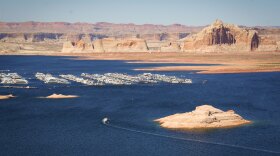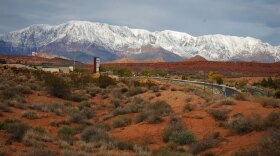-
Critics and environmentalists see Trump’s decision as “moving backwards to an era” where environmental effects, like the ones Utah already experiences, are ignored.
-
As the climate warms, winter snow is less of a given. And the Olympics might have to come up with creative solutions. One idea that's getting a serious look? A rotating list of host sites.
-
Negotiators are focusing on a five-year agreement for sharing water from the shrinking river. Experts say that would provide some much-needed flexibility.
-
A large snowmaking upgrade has come in handy at Nordic Valley, but the resort is still hiring staff after many part-timers left for more reliable work.
-
“We're closer to the edge of the cliff than we realize,” said one Colorado River expert who worked on a new report outlining what 2026 could hold for Utah’s Lake Powell.
-
The warm autumn put Salt Lake City on track for its second-warmest year on record. It’s running 3.3 degrees hotter than its historical average.
-
Northern Utah has a small fraction of the snowpack it typically has this time of year. That’s bad news for ski season and water supplies.
-
In the past, the Wildlife Rehabilitation Center of Northern Utah has typically been able to estimate how many patients will come in. But when the weather swings too far in any direction, it’s hard to buy the right amount of supplies.
-
Since 2000, heat has become the primary force behind how severe and widespread Western droughts get.
-
The announcement Friday by federal officials means Arizona will again go without 18% of its allocation, while Mexico loses 5%. The reduction for Nevada will stay at 7%
-
The Trump administration wants to undo a landmark Environmental Protection Agency rule that has become the bedrock of many policies aimed at lowering greenhouse gas emissions.
-
There's more going on in trees than what most of us may know. Experts explain the science of trees.
Play Live Radio
Next Up:
0:00
0:00
Available On Air Stations












